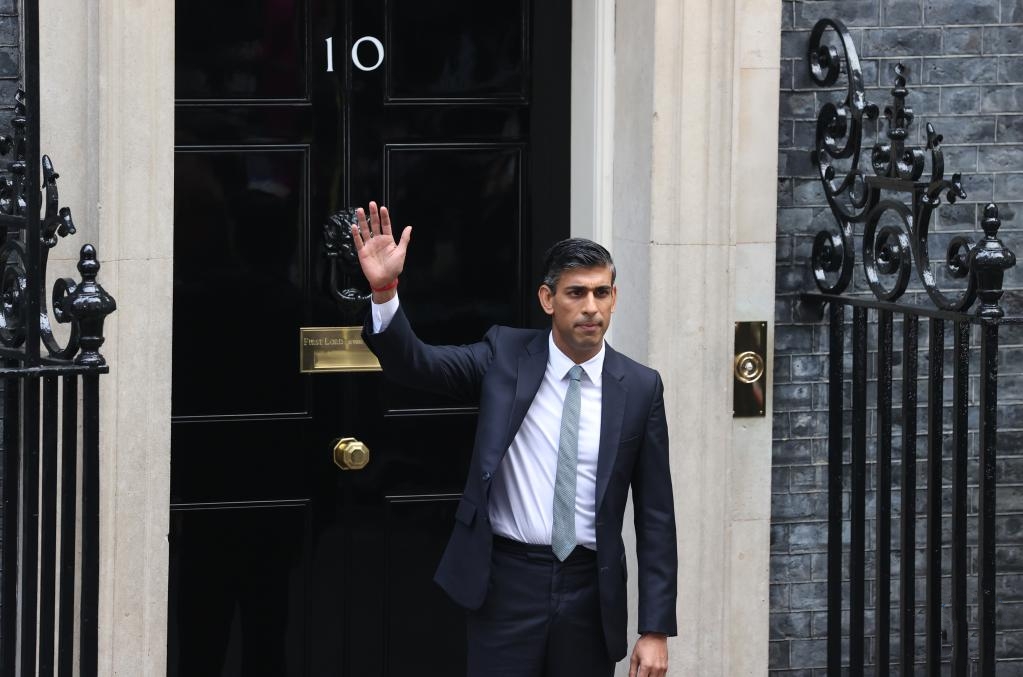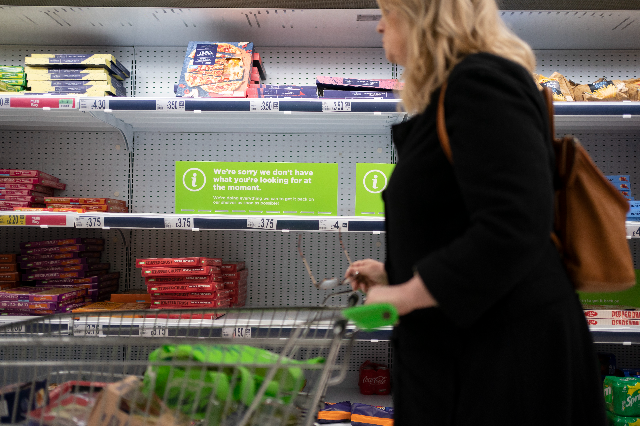2022-11-11 Source: newsgd.com Editor: Lydia
By Professor Mehri Madarshahi
It was a head-spinning reversal of fortune for Rishi Sunak, who abruptly had resigned from Boris Johnson’s cabinet leading to Johnson’s downfall plunging Britain into upheaval. Astonishingly enough, some six weeks after he lost the leadership contest to Liz Truss, he became GB’s Prime Minister.
Boris Johnson’s perceived comeback was brief. Failing to persuade either Sunak or the other leadership contender, Penny Mordaunt, to come together and back him “in the national interest”. He withdrew from the race on October 23 and within an exceedingly short period of three-days, Sunak was chosen by the parliamentarians of the Conservative Party as Prime Minister.
On October 24, Hindu communities were celebrating Diwali – a festive Indian holiday. Sunak is a practicing Hindu. He took his oath of office as a member of Parliament on the Gita (a book of Hindu scripture). Sunak’s triumph became a significant milestone for the nation’s Indian diaspora, whose long struggle against racism and prejudice was rarely a prominent issue in British politics.
Britain is home to a vibrant and diverse community of people with roots in India, which it ruled as a colony for nearly a century before India won independence in 1947. As many as 1.4 million people of Indian descent live in England and Wales, making them the largest ethnic group after white Britons.
Overall, his selection as Prime Minister is a significant milestone for Conservative Party policies that had a fame for hostility to immigrants and asylum seekers. Human rights groups, for example, condemned a policy initiated under Johnson aimed at sending some refugees arriving in Britain to Rwanda.

Sunak will be many “first” in the history of the UK. At 42, he will be the youngest prime minister in more than 200 years. He is the UK’s first leader of colour (a milestone for a polyglot nation that has become more ethnically diverse in recent decades, albeit one roiled by occasional anti-immigrant fervor). He is the first Hindu and the first PM whose wealth is twice larger than that of the late Queen Elizabeth II. His wife is the daughter of an Indian technology billionaire (Infosys) and as a former investment banker, he will be one of the wealthiest people ever to occupy 10 Downing Street — something that could prove a liability, if not a vulnerability at a time when Britons are struggling to pay soaring gas bills.
The Times of London this year estimated the Sunak couple’s wealth more than $800 million, placing them among the 250 wealthiest British people or families. It was only two months ago that Sunak faced scrutiny over his wealthy wife’s tax status, and over holding an American green card while in office. On Friday, Murty (his wife) tried to defuse the crisis for her husband by announcing she would begin paying taxes in Britain on her overseas income.
It may be then ironical that Sunak, as a multimillionaire, has been left with the task of steering a deeply divided country through an economic downturn set to make millions of people poorer.
Some in the Conservative Party were not convinced that Sunak is the right choice and that he will be able to tackle the country’s finances while holding the Party’s multiple warring factions together, but the necessities to calm the financial markets and investors, among others, prompted the Tory majority in Parliament to accept his nomination.
Conservative political commentator Alex Deane told Al Jazeera that the last three Conservative prime ministers – Teresa May, Boris Johnson and Liz Truss – had been brought down by members of their own party. “So it’s very nice to hear people say good things about our new leader”. But the new prime minister faces formidable economic and political challenges. “While Sunak didn’t have a direct electoral mandate,” Deane said, “… One of the things he is going to have to do … is preside over a period of relative calm, reassuring the markets and not doing anything too bold or too rapid.”
Sunak takes the reins against a looming recessionary backdrop and inflation running at a double-digit pace, the highest in 40 years. Like many countries, the economy is slowing down and at risk of falling into a full-fledged recession. Meanwhile, the Bank of England -following the pattern of the US Federal Reserve – continues to raise interest rates with the hope to curb inflation and plans to start next month with slowly selling its bond holdings. That means the government will rely more on investors, who have been demanding higher interest rates, than the central bank to buy bonds.
Given the prevailing formidable economic and political challenges, Sunak has several urgent issues to resolve. One is how to support households squeezed by rising energy costs, (according to some forecasts, household energy bills could increase twofold, putting further pressure on incomes at a recessionary time for the economy is stuck) and higher mortgage rates. Other challenges are how to deal with volatility in global energy markets, how to restore Britain’s fiscal credibility in markets, how to encourage investment in productivity growth, how to iron out Britain’s trading relationship with the European Union and how to overcome the prevailing shortage of skilled labor to ensure the overwhelming needs of businesses, the manufacturing and the service industries.

In his press conference following his appointment by King Charles III, who asked him on October 25 to form a new government, Sunak mentioned that “There is no doubt we face a profound economic challenge. We now need stability and unity, and I will make it my utmost priority to bring our party and our country together.” Turss’ whole list of tax cuts and ideas, which, according to Sunak and others, belongs to Disneyland because none of it was going to be possible without crashing the economy more, was abandoned in the first moments of the new government.
Chancellor Jeremy Hunt – the fourth person in that role in four months – is due to present a highly anticipated budget on November 17 to plug the black hole in the public finances, which is expected to have ballooned to up to 40 billion pounds (45.2bn USD).
To bring down debt levels, highly difficult decisions on spending and taxes will need to be made. Hunt plans to ask every government department to find ways to save money despite their already stretched budgets. At the same time, he said taxes were likely to rise as well. His very first political challenge is dealing with a new elections in Northern Ireland ( the second set in seven months) and face the threat of the Democratic Unionist Party that “it would not participate in the assembly unless Sunak takes action on the post-Brexit Northern Ireland protocol agreed with the EU”.
His trip to Egypt COP27 on November 6, was his first foreign trip in which he hoped to have the first opportunity to present himself on the world stage.
Judging from Sunak’s background performances, one must conclude that he has experience steering Britain’s public finances through a crisis. As Chancellor in Johnson’s cabinet from February 2020 to this July, Sunak shielded skillfully households and businesses from some of the economic fallout of the coronavirus pandemic. Back then, inflation was low, and the Bank of England was buying government debt, helping to keep interest rates low as borrowing ballooned to pay for the large increase in spending.
However, that is unlikely to make tackling the country’s economic challenges any less daunting.
The latest data show that the pace of economic decline is gathering momentum. On October 21, Moody’s changed its outlook from stable to negative for the UK. Negative, because of the “heightened unpredictability in policymaking amid weaker growth prospects and high inflation. There was also a risk that increased borrowing would challenge Britain’s debt affordability, especially if there was a – in Moody’s words – “sustained weakening in policy credibility.” A lower credit rating tends to lead to higher government borrowing costs.
On October 24, economic activity in Britain measured lower with the services industry posting its worst monthly decline (according to the Purchasing Managers’ Index, which measures economic trends). The index for manufacturing activity also fell to 47.2 points. A reading below 50 depicts a contraction in activity.
These daunting tasks and the urgent need for a clear vision on where the country is heading in the short and long-term have made many sceptics to raise question whether Sunak is fit for the job. Or, should the nation go to the polls quickly, as demanded by the Labor Party and other opposition parties, which at the present time could be expected to be devastating for the Tories.
Healing the rifts in the party, and leading the country through the economic crosswinds of the months to come, will require extraordinary political skills not less than those required for succeeding the leadership contest.

